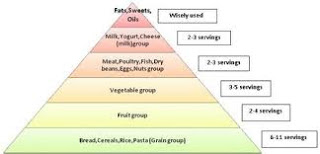 |
| High Cholesterol Foods to Avoid |
For those who suffer from high cholesterol the best and first way to control and lower their cholesterol levels is through their diet. But many people are confused as to what constitutes a high cholesterol food they need to avoid and a low cholesterol food. This is because there is a difference between dietary cholesterol and blood cholesterol.
Generally most health guidelines recommend that dietary cholesterol not exceed 300 mg per day for most healthy people, but if one suffers from high LDL blood cholesterol levels then this intake should be not more than 200 mg per day.
Cholesterol, a waxy like substance, is only found in animal meat and tissues and its sources include red meat, eggs, fish, poultry, and dairy products. On the flip side any food derived from plant sources is cholesterol free, including high fat plants food sources such as avocado's and peanut butter. This is where the confusion usually happens because eating large amounts of vegetable oil, which is virtually 100% food fat, can significantly raise blood cholesterol levels, particularly when eaten with high cholesterol foods.
The fact is that blood LDL cholesterol levels are highly influenced by the amount of saturated fat that one eats. There is a relationship between the amounts of saturated fat one eats the LDL cholesterol levels in the blood. For every one percent increase in calories obtained by eating saturated fat, blood cholesterol levels go up around two percent. Conversely for every one percent decrease in saturated fat intake cholesterol levels will reduce about two percent.
The thing to remember when it comes avoiding high cholesterol foods is that while doing so will decrease LDL cholesterol levels, reducing saturated fat intake has a bigger impact on these levels then many people are aware of. This does not mean that those who suffer from high cholesterol can eat high cholesterol foods, but they should be aware that there is more to reducing cholesterol then just this one thing.
The reason for this confusion with the way cholesterol can increase in the blood stream is the way many foods are cooked and/or served. Let's look at one of everyone's favorite breakfasts; bacon/sausage and eggs. We all know that eggs are high in cholesterol, but what we don't know is that the cholesterol in eggs has a small impact on blood cholesterol levels. It's the high amount of saturated fat in the bacon or sausage that has a far larger impact on LDL cholesterol levels.
Another culprit is deep fat fried foods. Many foods are for the most part harmless until they are breaded and fried in hot oil. In fact, many fish and seafood choices are considered to be good for us because of the omega-3 fatty acids that they contain, but as soon as they are deep fried and eaten any benefits are cancelled by the saturated fat that raises bad LDL cholesterol.
When it comes to high cholesterol foods to avoid it is important to remember that these types of food aren't necessarily bad in and of themselves if eaten in moderation. The real problem occurs when they are combined with high levels of saturated fat, which has a more profound effect on blood cholesterol levels.









